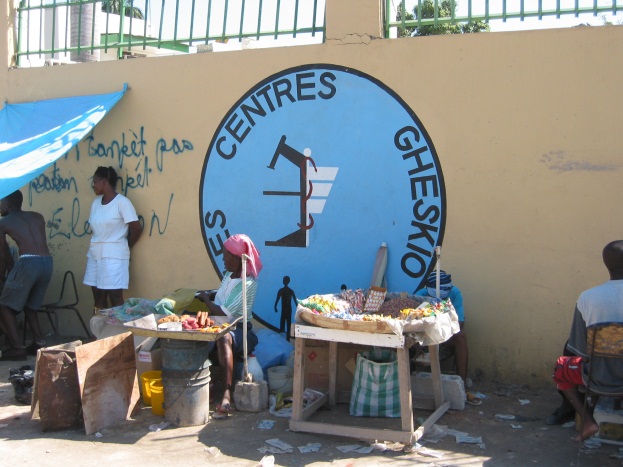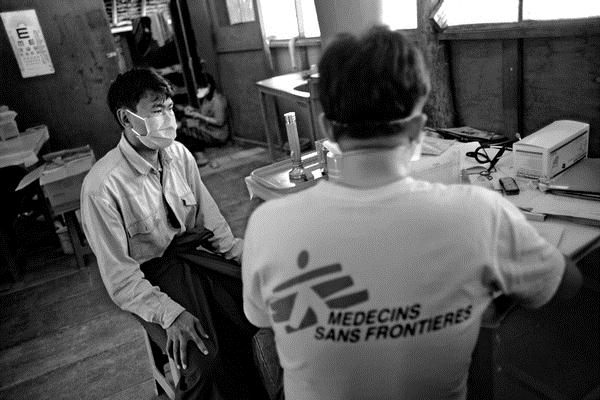The Haitian Group for the Study of Kaposi’s Sarcoma and Opportunistic Infections (GHESKIO) is one of the oldest institutions in the world dedicated to the fight against AIDS (founded May 2, 1982). GHESKIO‘s mission is research, training and patient care.

GHESKIO has the largest AIDS care center and one of the largest TB centers in the Americas and Caribbean. GHESKIO has worked on AIDS and on fighting tuberculosis (TB) in partnership with the Haitian Ministry of Health for the past three decades. GHESKIO developed and implements a comprehensive model of prevention and care of the management of HIV and TB in resource-poor urban settings, where patients live in impoverished, densely populated slums. By integrating primary care and social support programmes, GHESKIO provide a comprehensive approach focused on the family unit for prevention and treatment of HIV/AIDS, tuberculosis, malnutrition and poverty.
More recently in 2010, when an earthquake devastated Port-au-Prince, GHESKIO set up a field hospital for injured TB patients and for TB patients who lived in internally displaced persons camps and also trained community health workers to screen for TB symptoms in slums and make shift camps. In the six months following the earthquake, GHESKIO documented a five-fold increase in pediatric TB cases. The total number of TB cases treated at GHESKO sites nearly doubled in the three years post-earthquake, from 1 000 cases in 2009 to 1 800 in 2012.
Médecins Sans Frontières (MSF) International
Médecins Sans Frontières (MSF) is an international, independent, medical humanitarian organisation that delivers emergency aid to people affected by armed conflict, epidemics, natural disasters and exclusion from healthcare. MSF offers assistance to people based on need, irrespective of race, religion, gender or political affiliation.

MSF has been involved in TB care for 25 years. MSF started treating MDR-TB in 1999 and has grown to become one of the largest NGO providers of MDR-TB care. In 2012, MSF treated 29 000 patients for drug-sensitive TB in 30 countries, and 1 780 patients for drug resistant TB in 18 countries.
MSF - often working alongside national health authorities - treats patients for TB in a wide variety of settings, including urban slums, prisons, refugee camps, and remote rural areas.
MSF has TB projects in countries with a history of conflict and continuing unrest, including Central African Republic, Chad, the Democratic Republic of Congo and South Sudan.
MSF web site: http://www.msf.org/

